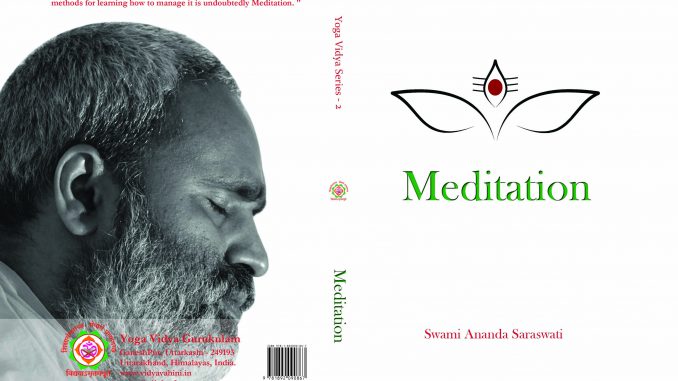
From the book ‘Meditation’ By Swami Ananda Saraswati
We have already made it clear that the purpose of meditation is not to give happiness. If you practice meditation to achieve happiness, what do you get? Meditation becomes an action and being an action, if it gives you happiness, this will be a temporary happiness, like everything else created over time. Are you interested in transient happiness? I give you the opportunity to choose: “Do you want a happiness that lasts forever or a happiness that lasts for a while?” Between these two, you will surely choose the first one. Of course, if you have no other choice, you will be content with transitory happiness, but if you want permanent happiness, this happiness cannot be the product of an action, not even of meditation. Meditation cannot give you happiness. So, what is the purpose of meditation? Making the mind available for knowledge. It is knowledge that will give you that freedom and happiness which will be with you forever and, in order for knowledge to occur, you need the mind to be available. How can you make your mind available? With discipline and not just with practice. The more you try to practice, the more the mind will entertain in practice, forgetting the purpose of the practice. You must discipline your mind and allow it, in a systematic way, to train to be disciplined.
Meditation is a process that gives the opportunity to train the mind, so that it becomes available for the knowledge. You might even say that my mind is available for me most of the time! In reality it is not. Whenever you are happy or unhappy, it happens because your mind is occupied by a certain thought. Because of that thought either you jump with joy or break down. Whenever your mind is occupied with a pleasant thought, you are euphoric and jump with joy; however, when you are depressed, the mind is occupied with an unhappy thought.
You are happy or unhappy, whenever your mind is busy. Without proper understanding, meditative ‘practice’ becomes another type of occupation and if one day your practice is good, you will be very happy and if the day your practice is not at the level you want, you will feel down. Does it happen like this, or not? In fact, you often say: “Today my meditation was excellent”, or: “Today has not been at its best!” Why? Because you make the mistake of considering meditation as a practice and so you start making comparisons. Over time you will also get tired of practicing, because saying practice is equivalent to saying work. Will you work 24 hours a day? No. This means that meditative practice will be performed for a certain time, but honestly speaking, that is not meditation. If instead you approach meditation as a spiritual discipline, it will last 24 hours a day.
Now, before I can make you fully understand that meditation is a spiritual discipline, I will talk about some forms of preparatory meditation. Much confusion arises from the fact that these preparatory meditations are considered the ultimate form of meditation.